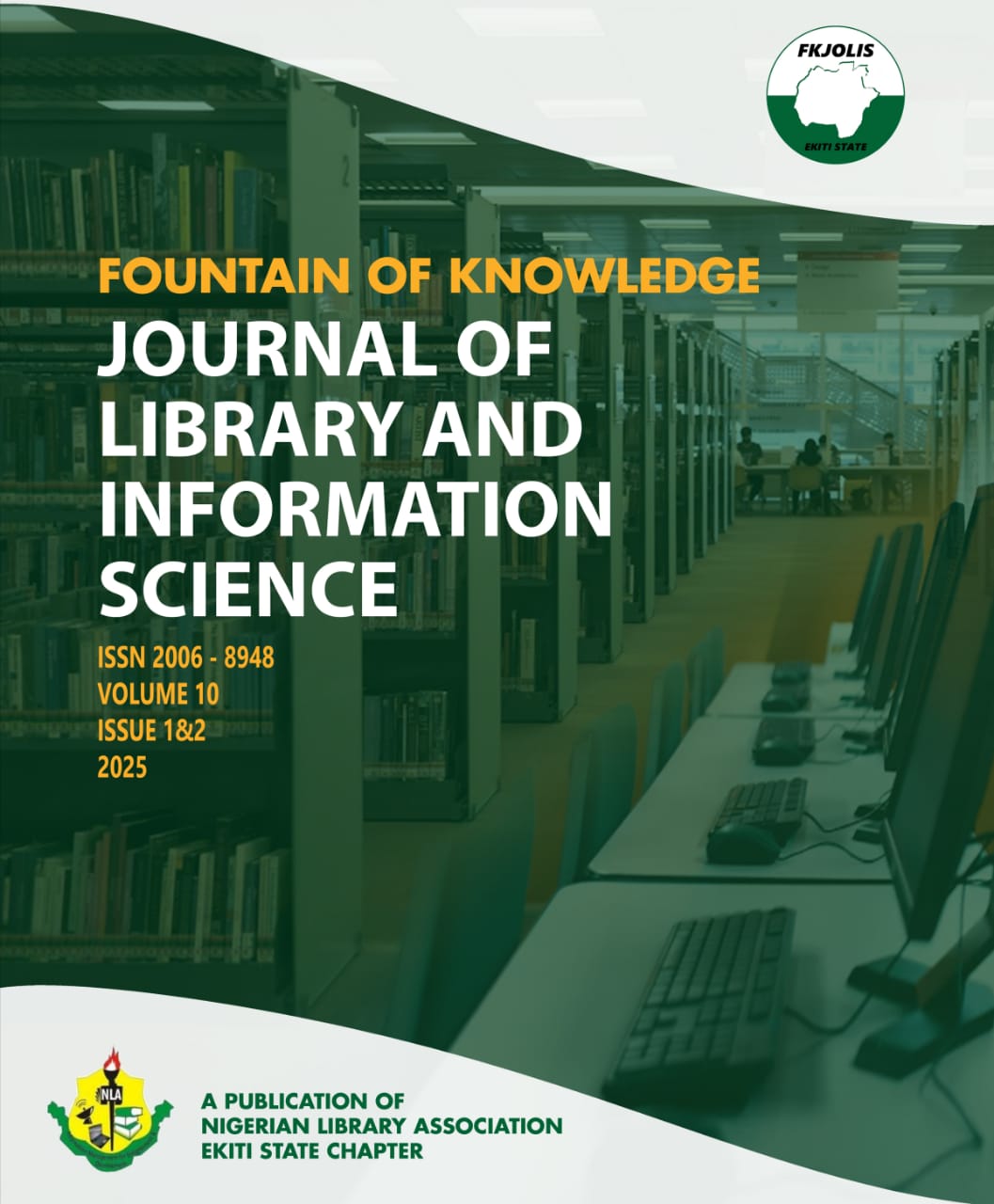Influence of Work Environment on Research Productivity of Librarians in Public University Libraries, South-West Nigeria
Main Article Content
Abstract
This study examined the influence of work environment on the research productivity of librarians in public university libraries in South-West Nigeria. Guided by three research questions and one hypothesis, the study adopted a survey research design. Data were collected from librarians using a structured questionnaire and analysed with descriptive and inferential statistics. The findings revealed that research productivity among librarians was generally low across quantity, visibility, and quality, with limited publications in reputable journals and low presence in recognised indexing platforms. The work environment was also found to be largely unsupportive, with gaps in psychological, physical, and social conditions such as inadequate resources, lack of recognition, and weak collaborative culture. The regression analysis showed that the work environment significantly influenced research productivity, highlighting the critical role of institutional support. The study concludes that improving librarians’ work environment is essential to enhance scholarly output and thus recommends better infrastructural facilities, recognition and incentives, research training, mentorship, and improved access to global indexing platforms to strengthen research contributions.

